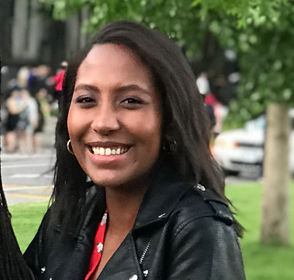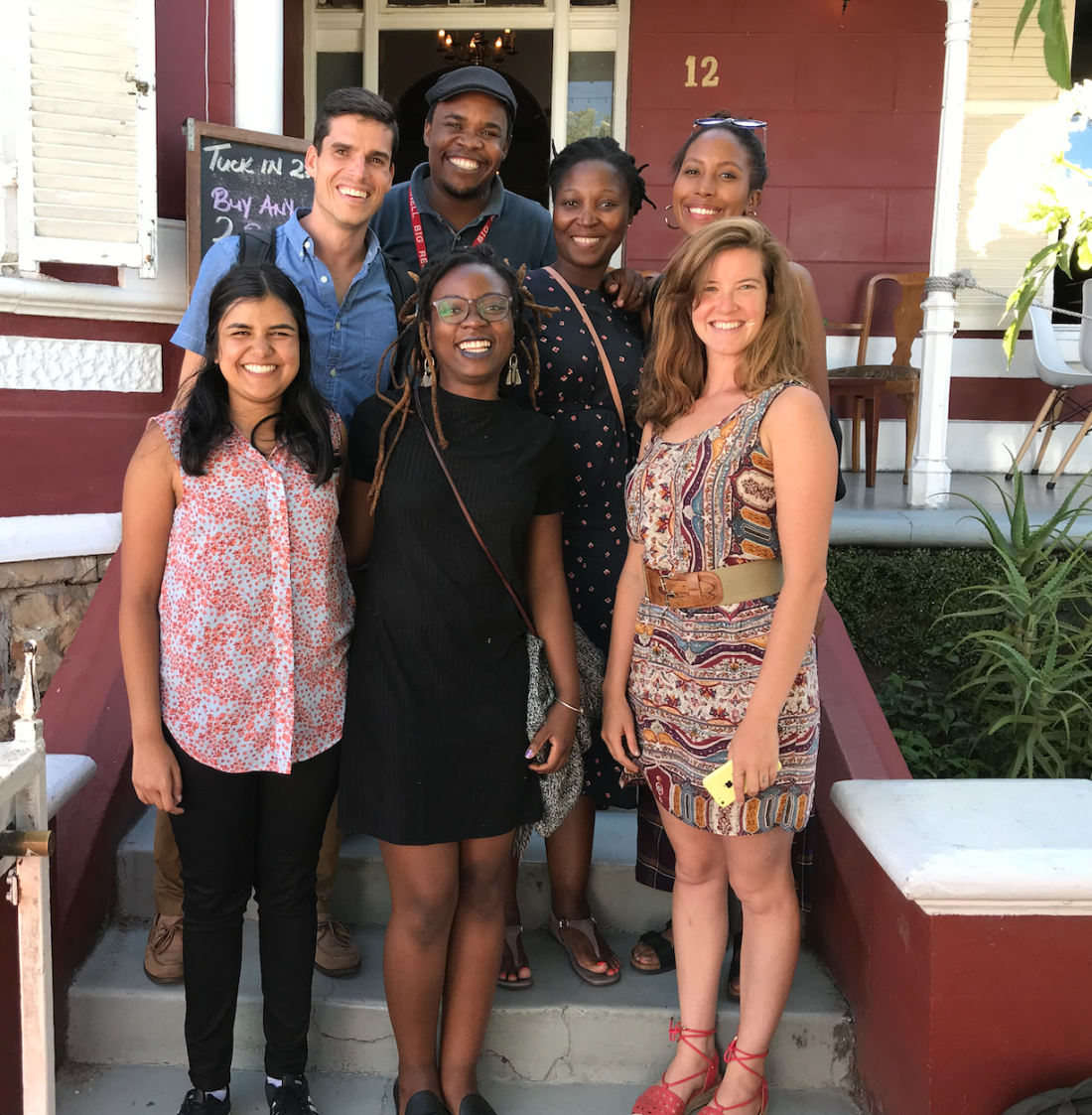Ayan Ahmed’s vision for her Info Sci education at Cornell University was clear and succinct: do project-based work and build a strong user-experience (UX) portfolio.
Mission accomplished.
ayanahmed.png

In her two semesters in the Master of Professional Studies in Info Sci program, Ahmed has padded her portfolio with essential, real-world experience that any hiring team would note. In the fall, she and her MPS project teammates advised a regional businessowner with plans to scale a group-purchasing platform to aid other small, family-owned businesses. Over winter break, she spent time in Cape Town, South Africa, helping a small, soap company get a better foothold in the local retail market and take their business to the next level.
“At Cornell, I’ve done a lot of group work, the kind of group work I like,” Ahmed said. “I’m taking a software engineering course right now where I’m working with computer science students, and there’s a design team and front- and back-end development teams. It’s practical and realistic of how actual business teams operate.”
Ahmed’s path to Cornell is a unique one. Her native Somali parents raised her in the United States and then Canada, where she graduated from the University of Toronto-Mississauga with a specialization in digital enterprise management. Her father, Omar Abdi, graduated from Cornell in 1992 – attaining both a master’s in regional development planning and a PhD in development economics – and went on to work for the United Nations. Recalling visits with her family to Cornell’s Ithaca, NY, campus as a youngster, Ahmed knew where she would pursue a master’s degree to hone interests in human-computer interaction and UX. She arrived as a MPS student in Info Sci last fall and since then has narrowed her professional focus to UX research.
[P]eople get stuck on making advanced technology when sometimes it’s just improving the systems with simple things that are already there.
“I love the research side of user experience – talking to people or even examining user data to try to understand how those numbers turn into people’s habits and behavior,” she said. “Cape Town offered consumer research in a different country, a different market and different mindset.”
She’s talking about the Cape Town project from this past January, when she and four fellow Cornellians traveled to the South African port city as part of Cornell University’s Students’ Multidisciplinary Applied Research Team program, or SMART, a service-learning initiative open to all Cornell students and offered through the Dyson School of Applied Economics and Management. Over 10 days in Cape Town, the team worked alongside Sipho and Zikhona Tefus, owners of a small but popular, enviro-friendly soap company, O’live Handmade Soaps, to understand their vision and identify opportunities to expand and grow their business. They reviewed the company’s financials, visited O’live’s production sites, and interviewed customers and competitors to help improve operations and inform recommendations for expansion. The student team also came to understand the challenges that come with being a black-owned business in a country still navigating the racist legacy of apartheid.
Ayan Ahmed group shot.png

“There are social things to be aware of in Cape Town – the wage gap is very obvious – and we prepared a lot for it because of South Africa’s history, with apartheid, and because this is a black-owned business,” Ahmed said.
After carrying out their field work, the team compiled three business recommendations for the Tefus and crafted a pitch for the couple to use when approaching potential O’live investors.
“The Tefus are creative people who know what they’re doing. I think what our team provided was validation that they were doing the right things and had the right ideas for expanding their business,” she said. “Their end goal is to be a soap manufacturer and have multiple companies under them. We looked at ways to get them there.”
Seemingly small, operational kinks were not out of the team’s purview. One area in need of improvement best illustrated to Ahmed that sometimes cutting-edge innovation takes a backseat to the simplest, most practical solution.
“They had trouble keeping track of their stock and what to order,” she said. “They didn’t use the computer system they had in place, because if you’re in the factory making soap, you’re not going to go back into the office and log what items need to be reordered. So [teammate] Jamila Daniel set them up with a simple Google Sheets inventory document to pull up on their phones or print and hang on the factory wall.”
Problem solved.
“I want to create tools that someone will actually use – anything from developing programs or systems, physical devices, and interfaces,” she said. “But people get stuck on making advanced technology when sometimes it’s just improving the systems with simple things that are already there.”
Months away from graduation, Ahmed said she’s focused on her classes and not stressing job prospects just yet. And she’s still padding that portfolio with fun-and-semi-secret projects (hint: one of them involves campus bathrooms).
“I haven’t been focused on the job search. I’m having too much fun here with classes,” Ahmed said, citing Gilly Leshed’s Advanced HCI Design course (INFO 4400), Rapid Prototyping (INFO 4320), and her SMART class in particular. “I don’t worry too much about anything. Maybe ask me in May.”
Ahmed wishes to recognize her SMART program teammates. They are Niagara Pal, an undergraduate senior in the Dyson School of Applied Economics and Management, and Jamila Daniel, a master’s student in the Cornell Institute for Public Affairs. The team leader was Chad Fiechter, a master’s student in the Dyson School of Applied Economics and Management and the project advisor was Amanda Enqvist, an affiliate with Markets Matter Inc., a resident of Cape Town, and a Cornell Alum. This research was made possible through the support of the Student Multidisciplinary Applied Research Teams (SMART) program within the Emerging Markets Program (EMP) in the Charles H. Dyson School of Applied Economics and Management at Cornell University. In South Africa, many thanks to the host company, O’live Handmade Soaps, Zikhona and Sipho Tefu (Owners), and other stakeholders who supported the SMART team while in-country.
Louis DiPietro is the communications coordinator for the department of information science.



